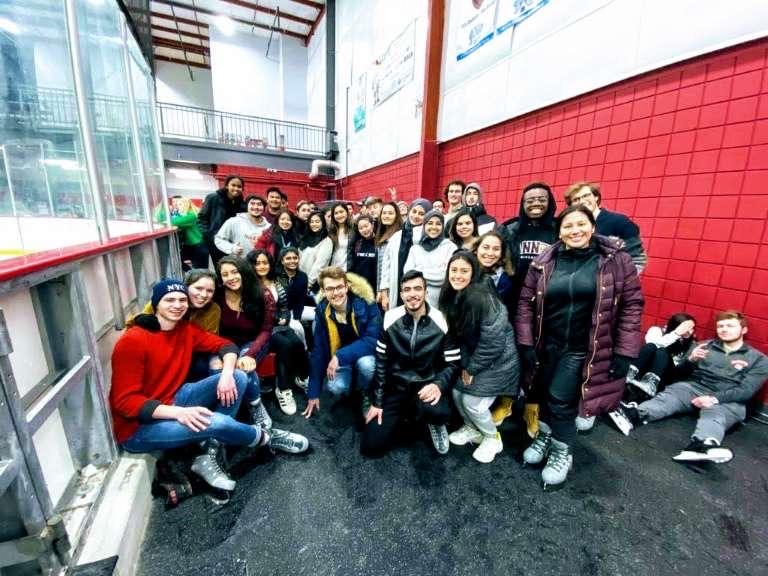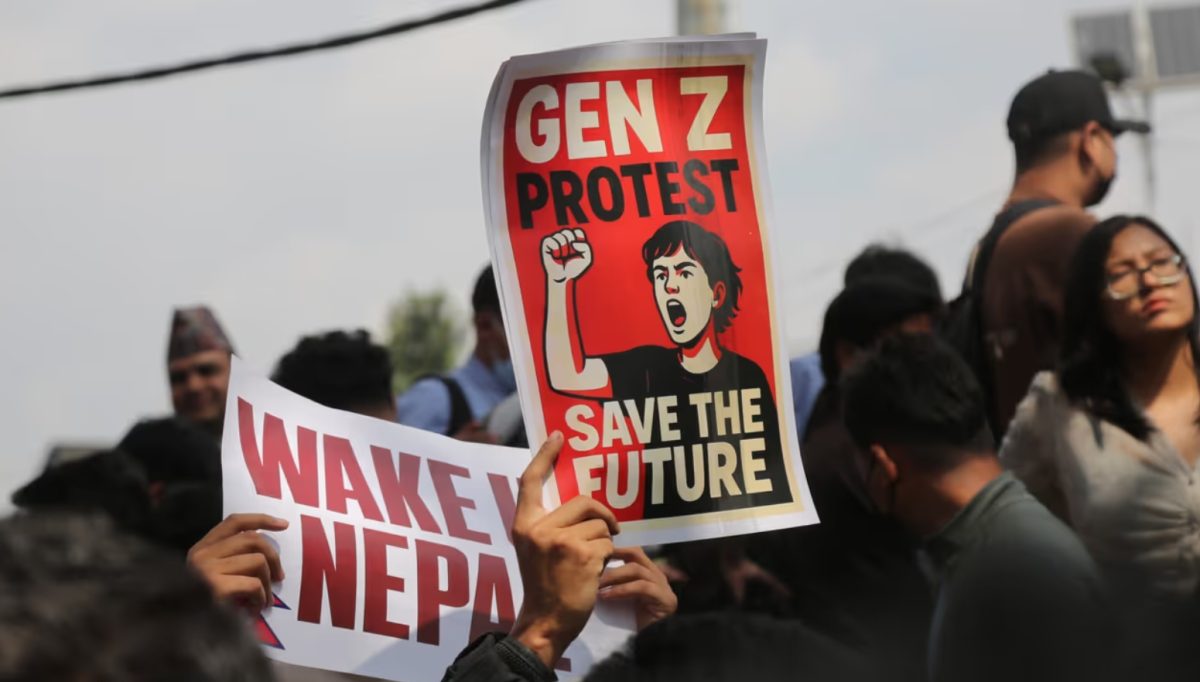A woman draped in an electric orange turtleneck practically glows against the sea of turquoise chairs left empty, clutching her hands together, white-knuckled and bowing in prayer. The wide windows of the Nairobi Baptist Church in Kenya flood the sanctuary in light as Mass is live streamed online due to the spread of the coronavirus.
Across the ocean, Sydney Oyatta, a Nairobi native, sits in his dorm room on Gannon University’s campus, opening his laptop to complete online coursework as the campus remains closed due to the pandemic.
While the rest of the world may find new ways to connect during the spread of COVID-19, it continues to challenge international students who find themselves apart from their families.
For Oyatta, this is something he has grown used to. At the age of 16, a close family member passed away, and Oyatta flew out to Kenya for the funeral.
Now, with international travel banned, if Oyatta’s family members were to get sick, it wouldn’t be possible for him to be there with his family. He worries about his grandmother and her pre-existing medical conditions as the virus rapidly spreads across the globe.
Still, he finds support within the Gannon community and works to help others stay positive.
“It’s different for multiple people,” Oyatta said. “People experience terrible things all the time but that doesn’t mean the world stops. It’s your livelihood, and that’s how you survive.
“I think some advice I might give is find a good support group, whether it be your closest friends or family. You can’t go through something like that alone.”
As a graduating senior, Oyatta said his first instinct was to stay at Gannon. As a senior international student, he is concerned about navigating the job market during this trying time. He spoke of students opting to go to graduate school to extend their visas and others contemplating going back home.
“The rest of us, such as myself, we are just banking on this whole thing settling down,” Oyatta said. “It’s the only thing we’ve got.”
The U.S. addressed issues regarding international students’ limit of one online class per semester, permitting more flexibility as universities implement alternative teaching methods. However, international students are still restricted within their working options.
In light of the current situation, many international students find themselves without a job, as their visas only allow them to have an internship in their career field or work on campus.
Fortunately, Oyatta was already prepared for the campus shutdown when it occurred, so it didn’t surprise him. He bought necessities ahead of time and contacted Gannon’s Center for Social Concerns (CSC).
The center has worked closely to help international students, such as providing gift cards to grocery stores to those students who are now unemployed.
Sinza Shrestha, a senior information systems major from Nepal, is facing the uncertainty of maintaining her internship as more businesses are not able to have non-essential workers.
In addition to her job, Shrestha worries about the safety of her parents and the outlook of her career following graduation. She communicates daily with her parents, who are both high-risk for the virus due to preexisting medical conditions.
Shrestha said the idea of one of her family members getting sick is her “worst nightmare.”
“I don’t want to think about it, but I have to,” she said. “Everyone’s hands are tied right now, and I have to be here and hope that they don’t catch it.”
Shrestha stayed at Gannon because she thought the health care system in the U.S. would be able to handle the spread of the virus better than other places, and if she were to go back home, she is afraid she wouldn’t be able to get back into the U.S. afterward.
“Going home is a scenario I’m not even imagining right now,” Shrestha said. “My plan is to go home eventually, but maybe 10 years down the road. I want to get all the experience and knowledge I can get here, but this lockdown is going to hamper it.”
CHLOE FORBES
[email protected]








